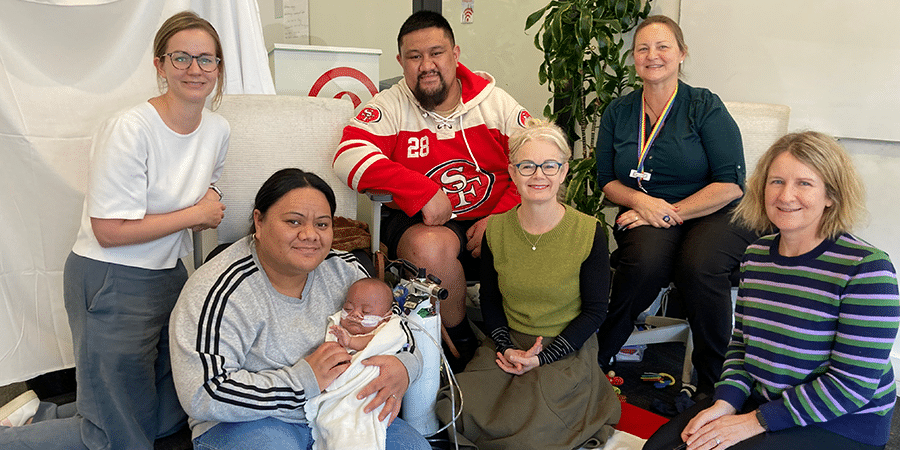
Clients and team members of the NZ PĒPI ARC program
Cerebral Palsy Alliance, New Zealand Health Research Council, Accident Compensation Corporation (ACC) and the New Zealand Federation of Women’s Institute co-funded the program, PĒPI ARC – Partnering Early To Provide for Infants at Risk of Cerebral Palsy: Implementing Early Detection Through a Regional Hub in Aoteaora that has been key in advancing early intervention practices and improving care for children at risk of cerebral palsy (CP).
In New Zealand, fewer than 40% of children with CP are diagnosed before 12 months of age. This is due to inconsistent access to early assessment tools, varying levels of experience among health professionals, and challenges in communicating outcomes to families. To address this, a regional early detection Hub was developed, incorporating a Māori-centered relationship model of care including face-to-face multidisciplinary clinics, a virtual Hub supporting regional infants and local health professionals, telehealth for flexible access to care, and resources to improve health literacy.
Preliminary data from the early detection Hub shows promising results for infants at risk of CP:
Feedback sessions with clinicians from have been overwhelmingly positive. Clinicians have ongoing support in General Movements Assessment (GMA), Hammersmith Infants Neurological Examination (HINE), and brain imaging.
This project and related work in early detection and early intervention are helping to deliver better outcomes for children and families in New Zealand.

PĒPI ARC team – lead by Neonatologist Dr Angelica Allermo Fletcher – working towards access to early CP assessments through a regional early detection Hub in NZ.